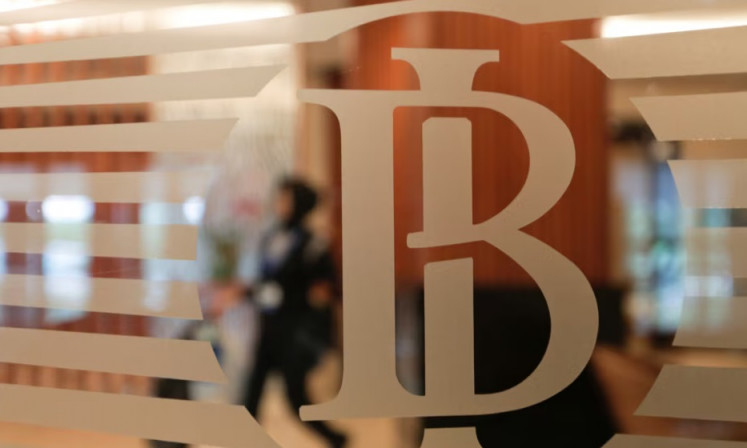Popular Reads
Top Results
Can't find what you're looking for?
View all search resultsPopular Reads
Top Results
Can't find what you're looking for?
View all search resultsVehicle growth creates traffic nightmare for Bali
The Bali administration’s task of solving traffic congestion is getting more challenging by the day, as the uncontrolled growth of vehicle ownership and lack of infrastructure threaten to engulf the island in commuter hell
Change text size
Gift Premium Articles
to Anyone
T
he Bali administration’s task of solving traffic congestion is getting more challenging by the day, as the uncontrolled growth of vehicle ownership and lack of infrastructure threaten to engulf the island in commuter hell.
The number of private vehicles on the island, including cars and motorcycles, has reached 1.76 million, of which 20 percent are cars and 80 percent motorcycles.
The annual growth of private vehicle ownership is 12 percent, while the island’s road network is expanding by 2.28 per year.
Made Santha, head of the province’s transportation, information and communications office, said it was very difficult to encourage people to take public transportation.
“Public transportation facilities have reached only 2.5 percent of the total number of vehicles and only 0.8 percent of residents are willing to use it,” Santha said.
In the last two years, traffic, especially in the southern parts of the island, has become severely congested in some areas, but there is no immediate solution to the problem.
In 2008, the World Bank recommended that Bali authorities develop an effective and integrated mass public transportation system that would ease traffic congestion.
The World Bank’s study suggested that around 70 percent of vehicles in Bali should be designated for mass public transportation.
On July 20, the Transportation Ministry will hand over 15 buses from the central government to the provincial administration.
In early September, the local authority will start operating a mass transportation service called Trans Sarbagita, connecting Denpasar, Badung, Gianyar and Tabanan regencies.
The central government has provided 15 buses to accommodate passengers commuting from downtown Denpasar to the connected regencies.
“The operation of Trans Sarbagita buses is expected to reduce traffic problems on busy streets, especially during office hours,” Santha said.
A bus ride will cost Rp 3,000 (35 US cents). The real value of the tickets is Rp 7,000, but the local authority will subsidize the price by making up the Rp 4,000.
Wirautama, a lecturer at a local university, was pessimistic about the authority’s plan to operate Trans Sarbagita.
Like thousands of workers, students and lecturers who commute from Denpasar and Tabanan to the Kuta and Nusa Dua areas, Wirautama has to spend hours to get to his workplace.
Hundreds of star and non-star hotels, villas, restaurants, the Ngurah Rai International Airport, schools, university campuses and offices are located in Kuta, Jimbaran and Nusa Dua.










